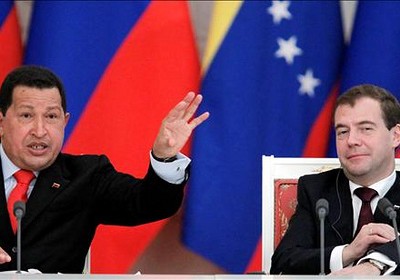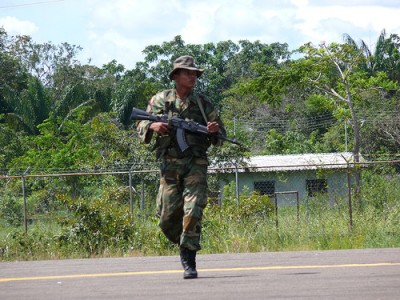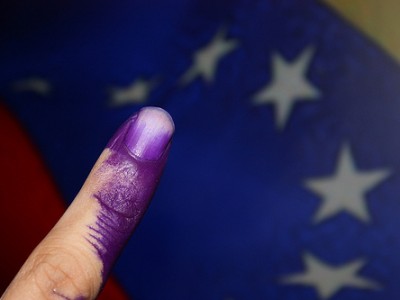Stories about Venezuela from October, 2010
Venezuela: Nuclear Energy Deal with Russia
President Hugo Chávez met with his Russian counterpart, Dmitry Medvedev, in Russia on October 14. At the meeting they signed a "plan of action" on different issues; among them, building a nuclear plant in Venezuela. Venezuela is the first Latin American country to sign an atomic energy deal with Russia.
Venezuela: Misinformation on ETA-Chávez Connection
“The ETA – Chavez connection, brought to light after Spain's equivalent to the Supreme Court asked Venezuela to extradite a number of people involved in terrorist activities, is generating a torrent of misinformation rarely seen,” writes Alek Boyd in his blog.
Venezuela: University Students Protest Budget Cuts
University students protested budget cuts in Caracas on October 14. Alejandro Tarrae reports on his blog [es] that he saw hundreds of Police and National Guard troops; he realized why so many security forces where in place when he later saw the multitude of students and professors protesting on the...
Venezuela: National Assembly Reforms Military Service Law, Removes Sanctions
Venezuelan Analysis reports that the National Assembly reformed the Military Conscription and Enlistment Law, eliminating sanctions for not registering in the Military Record.
Venezuela: Reactions to the Law of Military Service
At the beginning of October, the government declared that those not enrolled in the military record before October 21, 2010 would face penalties. The government's decision to "reactivate" the Military Conscription and Enlistment Law has generated an attitude of resistance from civil society, stronger than usual for orders coming from President Hugo Chávez.
Venezuela: Crime and Violence ‘Staring you in the Face’
“As crime has increased, not only does it get closer to you, but your self-imposed curfew grows and gets earlier. Your paranoia increases” explains Miguel Octavio from The Devil's Excrement, in the post “When street crime and violence stares at you in the face in Venezuela.”
Latin Americans Comment on Mario Vargas Llosa's Nobel Prize in Literature
Through blogs and Twitter, Latin Americans shared their different views on the announcement that Peruvian writer Mario Vargas Llosa had won the Nobel Prize in Literature.
Venezuela: Analysis and Reactions to Legislative Election Results
The results of the legislative elections of September 26 gave the opposition 65 seats in the National Assembly, even though they obtained the majority of the vote with 52%; while the ruling party with 48% of the vote, obtained 98 seats. The reactions to these results have been varied, and many citizens have turned to the Internet to voice their opinion and analysis through blogs and Twitter.




